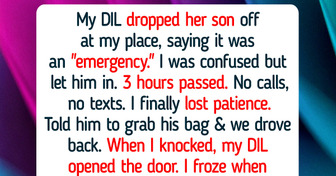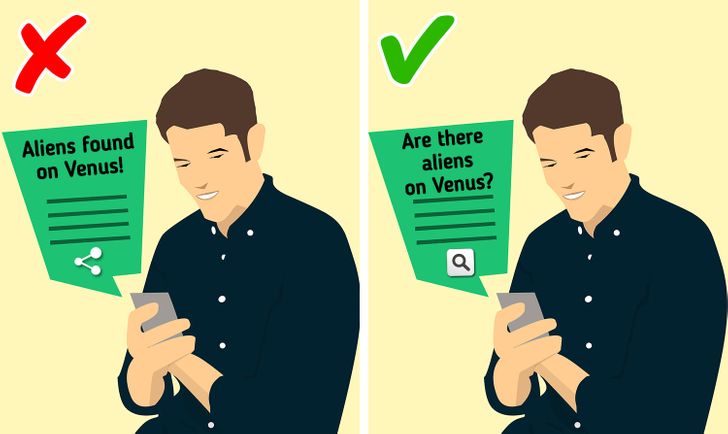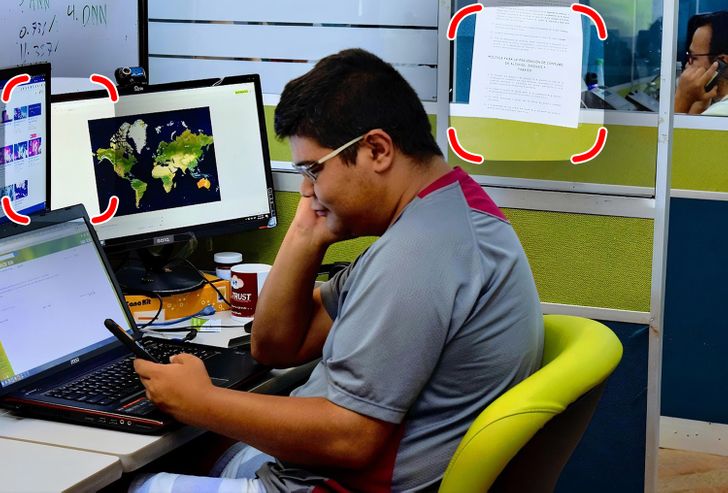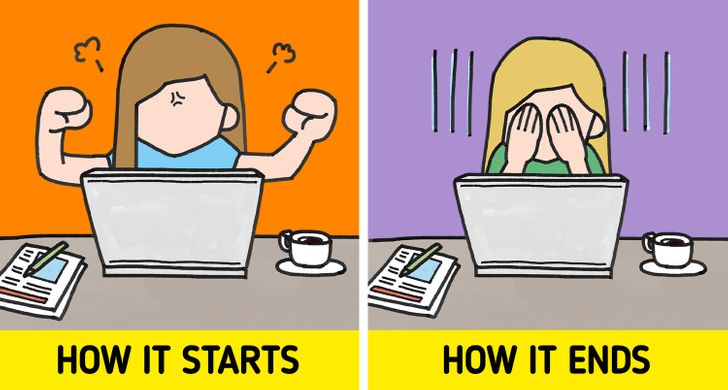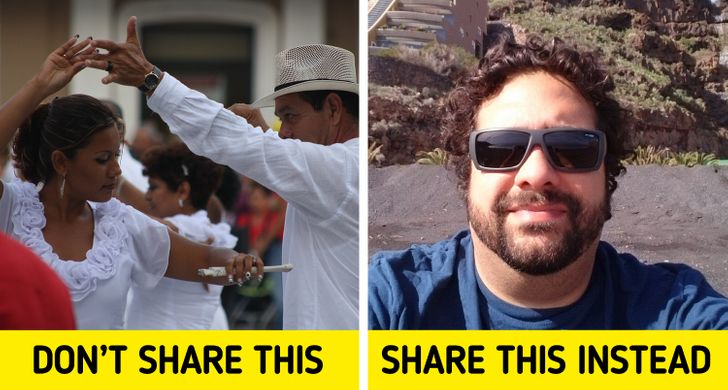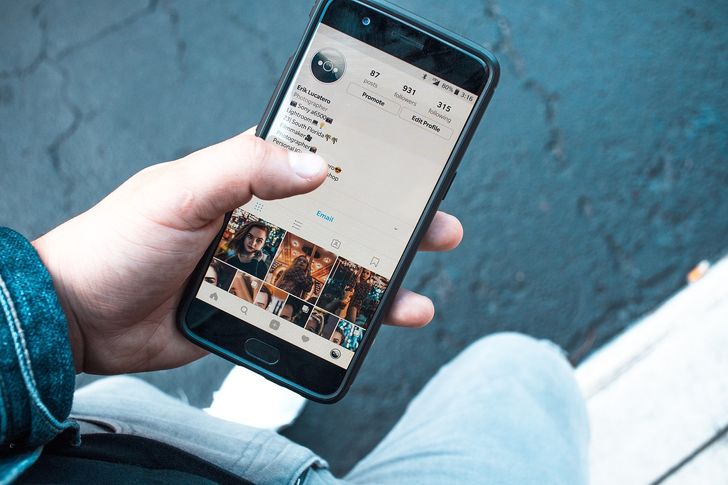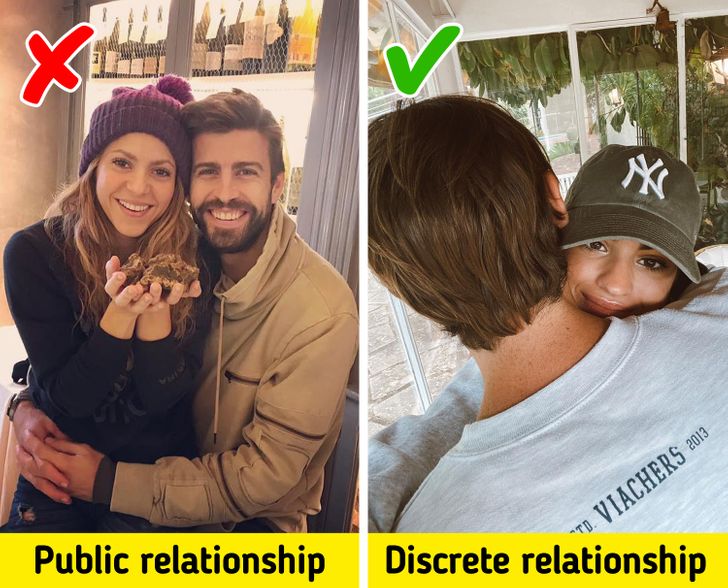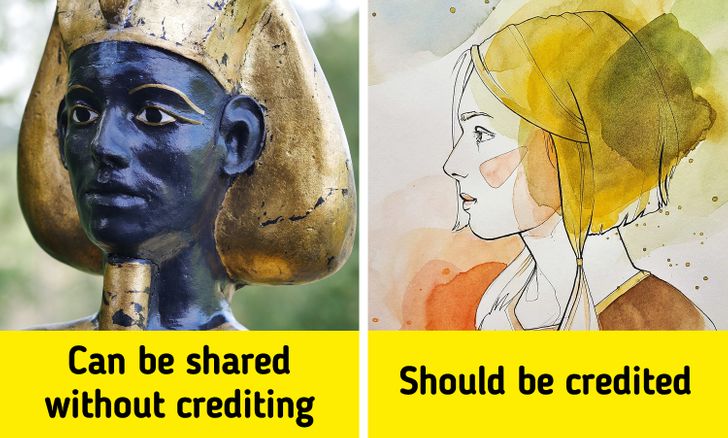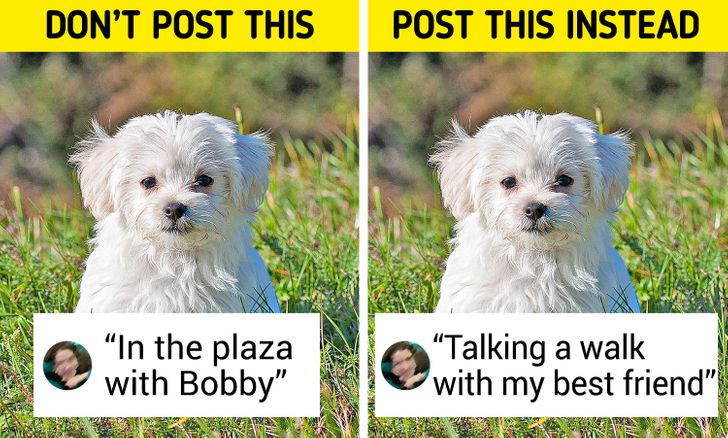funny because nowadays people post so much personal data that it's pretty easy to track almost anyone
12 Things You Should Be Careful With When Posting on Social Media
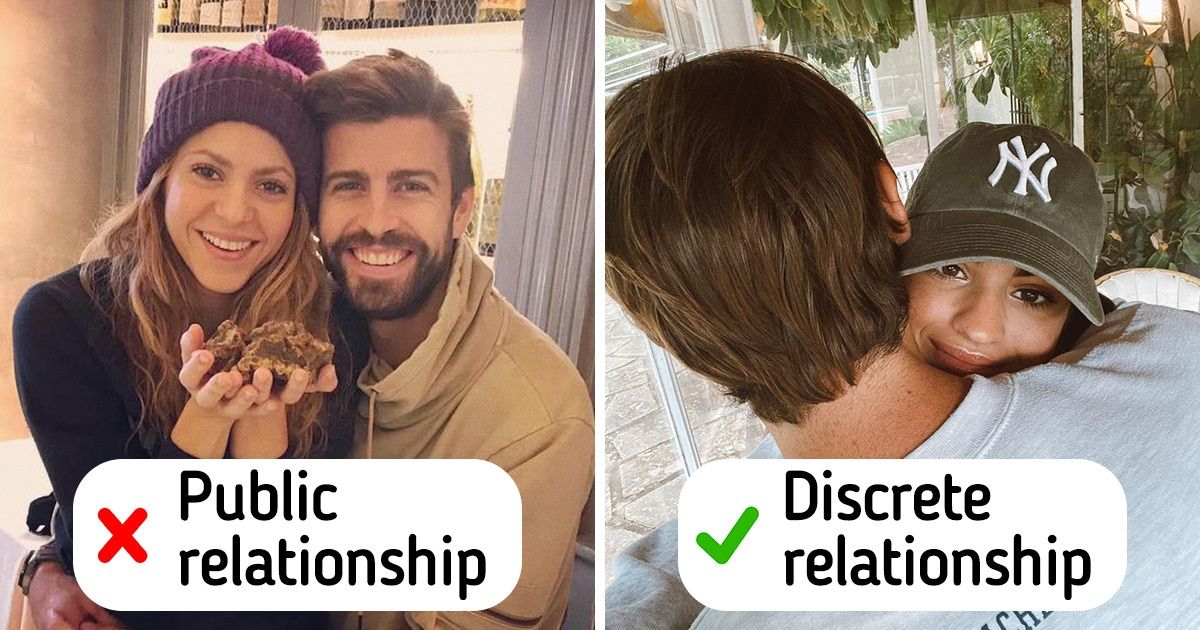
Many people share a lot of posts and comments on social media without really being aware of the consequences that they could have for them, their family and, their friends, and even third parties involved involuntarily. Posting too much information about people’s personal lives exposes them to various risks that range from identity theft to defamation. Because of this, before uploading things to the internet, it’s important to think twice and make sure we do everything we can to avoid posting anything that could later become a bigger problem than it should be.
Bright Side made a compilation with some of the most common types of posts we share online and did a little research to see how they can turn against us if we’re not careful enough.
1. Your children’s pictures and personal data
It is estimated that today’s parents post approximately 1,000 pictures on different social media sites where you can see their children before they even reach the age of 5. In addition, a large percentage of these children can be traced on the internet because there are pictures of them on these sites since before the age of 2. This is exactly the sort of thing that can, later on, create a privacy problem. People start competing to get more likes while disregarding the danger of exposing their children to online public conversation.
But it is not just posting pictures that has become a risky thing to do. Providing personal information related to parenting and children’s health is also far from recommended. While many new parents consult social media to seek advice from others who could be more experienced, doing this could potentially lead to the child being embarrassed by being exposed in this way. Later on, the child might become a victim of harassment and cyberbullying.
2. Your date of birth
Publishing your date of birth so that your contacts on social media get notifications and congratulate you is a common thing that many people do nowadays. However, while it seems meaningless at first, revealing this information is much riskier than most people realize. This is because security questions to recover a password often include this information since it’s one of the easiest things to remember. Making it public might backfire in this case, as you’re making the info available to everyone at all times.
Another potential risk that you could be facing when making your date of birth public on your profile is allowing others to find out your password for bank accounts or credit cards. Since it’s usually made up of 4 digits, many people use their birthday, which is, of course, not really recommended. And, while many take precautions by creating new “combinations” with these numbers thinking that they will avoid identity theft by doing so, the best way to make sure your data is safe is to simply not make it public.
3. Fake news
It’s hard to deny that sharing information on social media can contribute to creating an atmosphere of free speech. However, it’s important to understand that this new freedom comes with a catch, and like in most cases, one should try and look at the other side of things. Social media can also contribute to the creation and dissemination of fake news. These are usually created with different intentions in mind, but in some cases, they’ve been known to discredit a person or a company, to turn misleading content viral, or to get people related to an idea to reinforce their concepts on certain topics.
Creating and sharing fake news can have several undesirable consequences. Among them are the increase of hostility toward certain groups, the attack on a person’s integrity, and the loss of the reputation of a company or the media that contributed to its dissemination. Because of all these reasons, it’s always a good idea to run a quick search and sometimes to even investigate what you read online thoroughly to make sure that the article or information in question comes from a reliable source or, at least, that it is endorsed by a professional expert on the subject.
4. Private conversations
There are many people out there who find no issue in sharing screenshots of private WhatsApp conversations. This, by the way, applies to any other messaging service. Even in the rare cases when we have the other person’s consent, doing so might be considered a crime in several countries if you end up violating the right to communicate privately, revealing secrets, and/or damaging the reputation of someone involved in the conversation.
Although there are many nuances to this issue, individuals or media outlets that share a private conversation can be denounced by people whose lives can be affected by a reckless screenshot. That is why, to avoid any legal problems, it is best to treat personal matters as what they are meant to be: personal. Refrain from sharing personal conversations with friends or third parties that weren’t involved in the first place.
5. Pictures showing something potentially embarrassing or containing secret information
Regardless of how harmless the picture that you upload to social media might seem, you should always think twice before making it public. Remember, if you don’t pay attention to what appears in the picture, you might end up revealing sensitive information. Clearly, these types of incidents have happened and could cause a lot of problems. Think, for example, of that one time pictures of Prince William’s workplace were posted online. Incidentally, they happened to reveal the password to the UK Ministry of Defense systems. The government was then forced to reset the whole system and change its password.
This example illustrates an important lesson about online privacy: if you want to take a picture of yourself at your workplace, at home, or wherever you are, you should make sure to not show your computer screen, bank statements, travel tickets, or any other document containing confidential information. In any case, it is best to double-check the picture before posting it online, just to make sure there are no embarrassing details or sensitive information that could later be used against you.
6. Insults to other people
You know that, depending on the place you’re in, you are supposed to behave in one way or the other. For example, if you’re at the office you won’t act the same way as if you were at home or a restaurant. This is just as important when it comes to posting things online. There’s a certain code of behavior that you are supposed to be following on social media. In this case, what you should avoid is insulting someone online, ridiculing them, or making fun of a mistake they may have made.
Of course, what’s also true is that the way we behave offline is very different from how we act or what we show online. But every bad action, disrespectful incident, or moment of humiliation can have serious consequences for all the parties concerned. Therefore, before insulting someone on social media, stop and think for a minute. Ask yourself whether or not you’d like them to do the same to you and think about how you would react if someone made fun of your pictures or comments online. Empathy is key to understanding people, even online.
7. Pictures of other people that infringe on their dignity
Posting pictures on social media has become such a common thing to do that we do not always take into account the consequences of making some of these images public. This is especially true for pics that give a glimpse into our personal life. Clearly, we’re not talking merely about selfies or pics that we post, but also about those done by third parties without your authorization, and that can damage your reputation when they go viral online.
Sharing images that promote violence and discrimination affects not only the subject of these photos but also the people who share them. For example, you might end up being banned from Facebook and having your account blocked for violating the content standards of the platform. And, in more serious situations, you can even face a trial for not respecting the privacy of third parties. As you can see, it’s a very serious issue, so it’s important to take these things into account when posting online.
8. Too much personal information
When creating an account on any social media, you may find several boxes to fill in: name and surname, date of birth, address, telephone, and email, among others. Whenever you face these types of situations, you should always make sure to not provide too much information that could become public. Doing so could lead to harassment and unwanted attention by people you don’t really know. Most social media companies have ways of making your personal information private.
Among the data that is not recommended to be published as public information are, of course, your home address, telephone number, and even pictures of your family and friends. Remember that any of these could potentially fall into the hands of cybercriminals that could use them to steal your identity and in the worst-case scenario, even your money. In any case, it’s always best to set your basic profile information in such a way that only your contacts can see it.
9. Too much information about your love life
If you are in a relationship, it is normal to want to upload photos with your partner. In fact, it’s believed that this practice can both generate a greater connection between the 2 of you and prevent others from having a love interest in you or your partner. But as with everything in life, you should find a healthy balance between posting what you want and making sure you’re not giving away information about someone else.
There are situations where photos or statuses dedicated to partners may reflect insecurities or be interpreted as hints to others. In these cases, the best thing to do is to moderate your posts and spend time together.
10. Images protected by copyright
If you see an illustration or pictures that you like and you want to share them online, you should start by finding out who created it and if it has any specific requirements to be shared. You should also ask the original artist if you can use it and, by doing so, you’ll obtain written proof of their confirmation that will cover your back in case there’s a claim for replicating it without their authorization.
There are some exceptions to this rule, for example, public domain images, which can be posted anywhere without having to ask for permission prior to doing it. However, keep in mind that if they’re copyrighted they might have a license. In that case, you should read the requirements carefully to find out if it is needed or not, to clarify the authorship of the image and, if possible, post the link to the original source as well.
11. Your pet’s name, your favorite color, or other possible answers to “security questions”
A study claims that security questions are often weaker than passwords themselves, which could pose a threat to your privacy online. This is likely to be the case because questions are often so easy that anyone can answer them. You’ve probably run into questions like, “What is your pet’s name?” or “What is your favorite color?” Unwittingly, you may provide these answers on your social media, making yourself vulnerable to account theft.
If you answer this question with your pet’s name, avoid mentioning it when uploading its pictures on social media. Or, in any case, create a fake answer to mislead the intruder, both in this and in other security questions.
12. Biometric or medical information
Medical and biometric data typically falls under the umbrella of what anybody would understand as “confidential information.” Clearly, this is something that you should not share online since it could make you vulnerable in many ways. And in case you have a sick relative or friend, avoid giving precise information about their health condition. This is private and sensitive information that should be shared solely by the person concerned or by professionals.
If you are a doctor, avoid sharing images or X-rays on social media groups or communities without your patient’s consent. But if you do it for professional purposes, it is best to omit any personal data that may appear on the image.
What problems do you remember experiencing after sharing certain data on your social networks? What measures do you usually take to protect your privacy and that of your contacts?
Bright Side has its own podcasts now. Take cool articles with you and listen to new stories whenever and wherever you want.
Comments
Related Reads
12 Times Blended Families Learned That Love Doesn’t Need DNA

I Refused to Let Anyone Steal What My Dad Left Me, and My Mom Made It Worse

15 “How We Met” Stories Destined to Become Family Legends
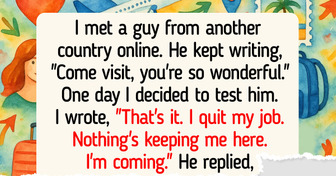
12 Moments That Teach Us to Stay Kind, Even When Life Becomes Heavy
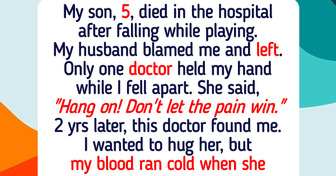
My Husband Promised to Stop Watching Me Through the Cameras—He Lied

I Was Fired for an Intern — Karma Hit Fast
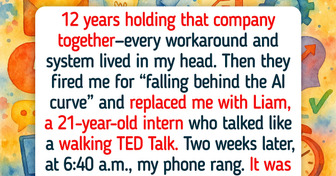
I Refuse to Let My Stepson Disrespect Me, His Arrogance Cost Him Big
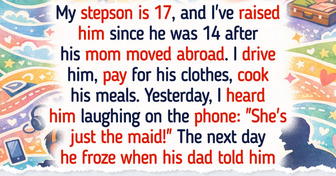
I Refuse to Be Treated Like a Servant in My Own Home, So I Had to Draw the Line
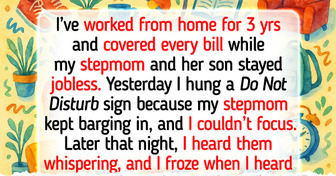
I Refused to Talk to My Parents After They Chose My Ex-Wife Over Me

My Mom Forgot About Me Until She Needed My Help—I Turned the Tables on Her
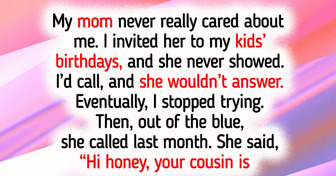
I Funded My Wife’s Luxury Demands—She Made Me Regret Every Penny

15 Quiet Moments of Kindness That Made the Biggest Impact
